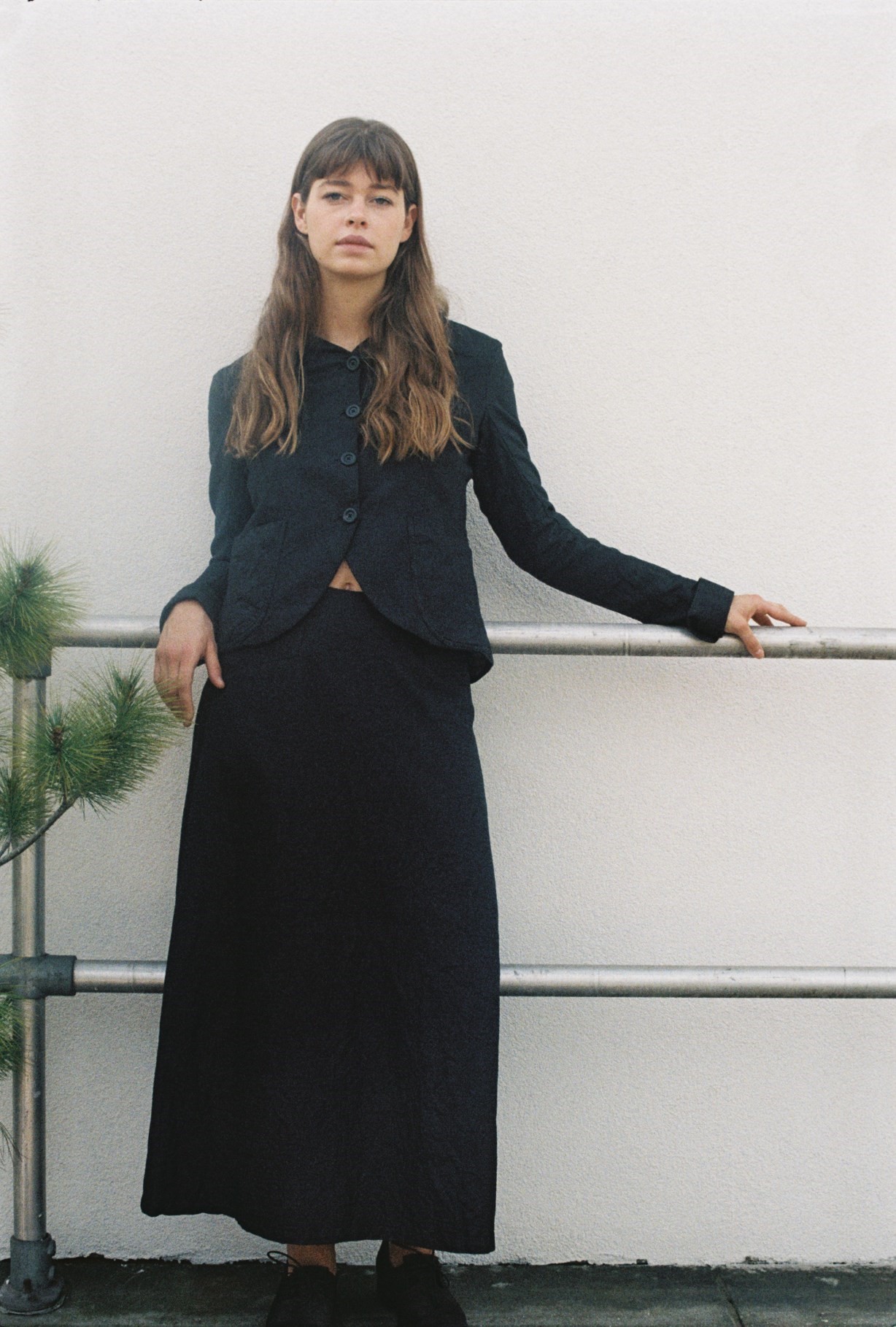Slowness is one of the most luxurious words in the English language. It implies inherent devotion, restraint, and patience; the absolute antidote to fast-paced, instantaneous gratification. Geoffrey B. Small devotes himself to slowness, emphasising a return to handcraft, textile development and tight distribution. In an industry that is ranked as the second most polluting and poisonous to the environment, Small has no more than ten stockists worldwide and the highly localised production is deliberately limited to a maximum of only 400 pieces per season. Small started his business in Boston in 1976, developing a signature homespun aesthetic that is laced with historicism and often monotone in its palette. Today, he remains independent and works from Cavarzere, Venice, where he aims to keep production pertaining to artisans working within a radius of 250 kilometres and the wooden looms and tools that the artisans use strictly traditional, both of which reduce the label’s carbon footprint and avoid chemical and energy wastage at costs.
One of Small’s first and only stockists, Hostem, for which he created this collection exclusively for, played matchmaker and introduced the label to Ryan Skelton, one of Central Saint Martins’ most promising talents (he’s still only in his second year) to create a series of images exclusively for the Shoreditch-based boutique. Skelton’s images, which are shot on film, echo Small’s emphasis on craft, process and warmth and the result is imagery that chimes with the humane ethos and aesthetic of the designer. “We’re so used to sharp digital photos, so it’s nice to go against that,” says Skelton. “When you concentrate on slowness and try different methods, you often don’t arrive at it straight away, which is nice because it shouldn’t be that easy. Someone like Geoffrey, who isn’t a part of fashion society, is actually more interesting and there’s more to express.” Skelton cast and styled images himself, which are previewed here exclusively by AnOther. We spoke to Geoffrey B. Small himself to learn about the detailed nuances of the collection and why the world needs a bit more slowness.
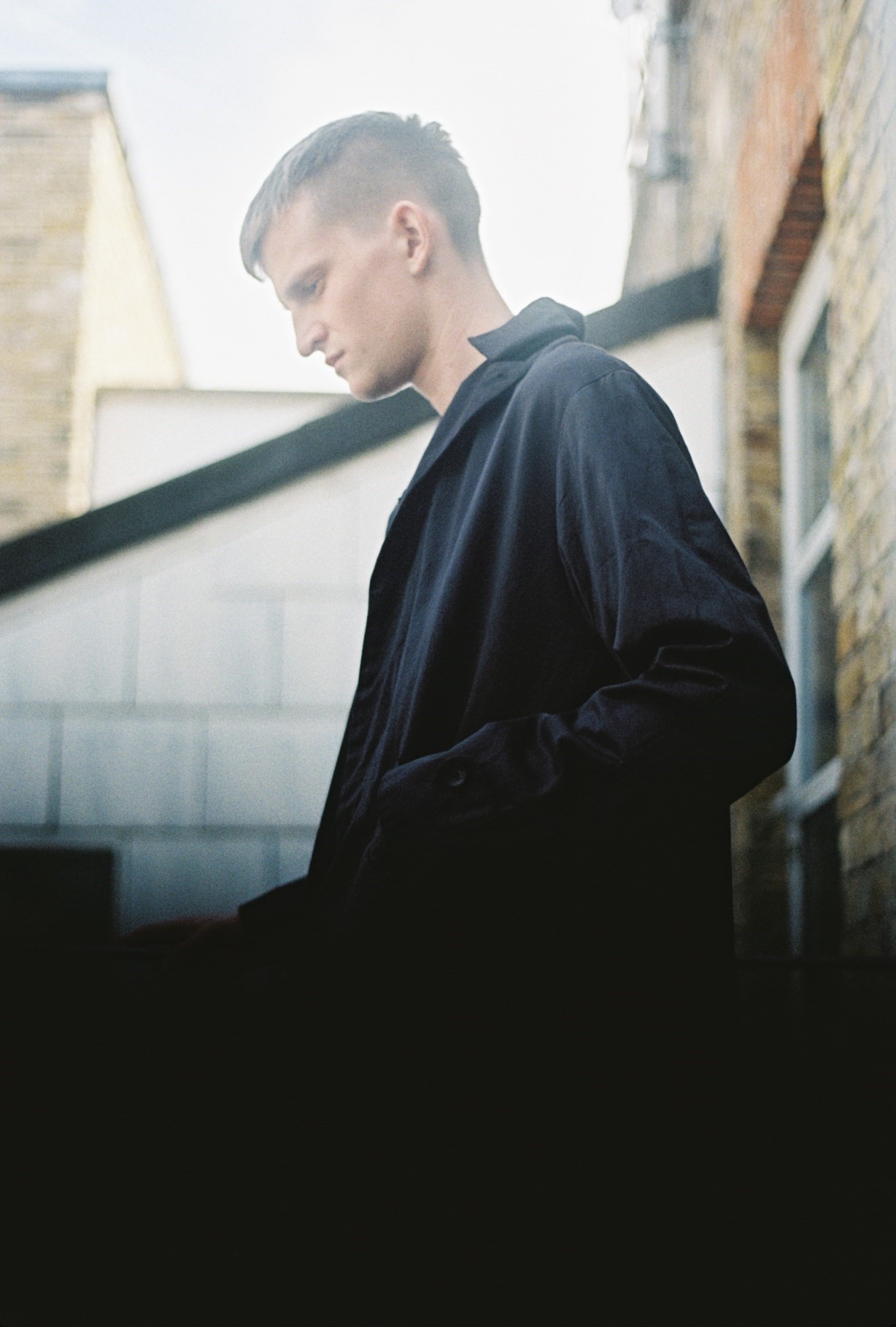
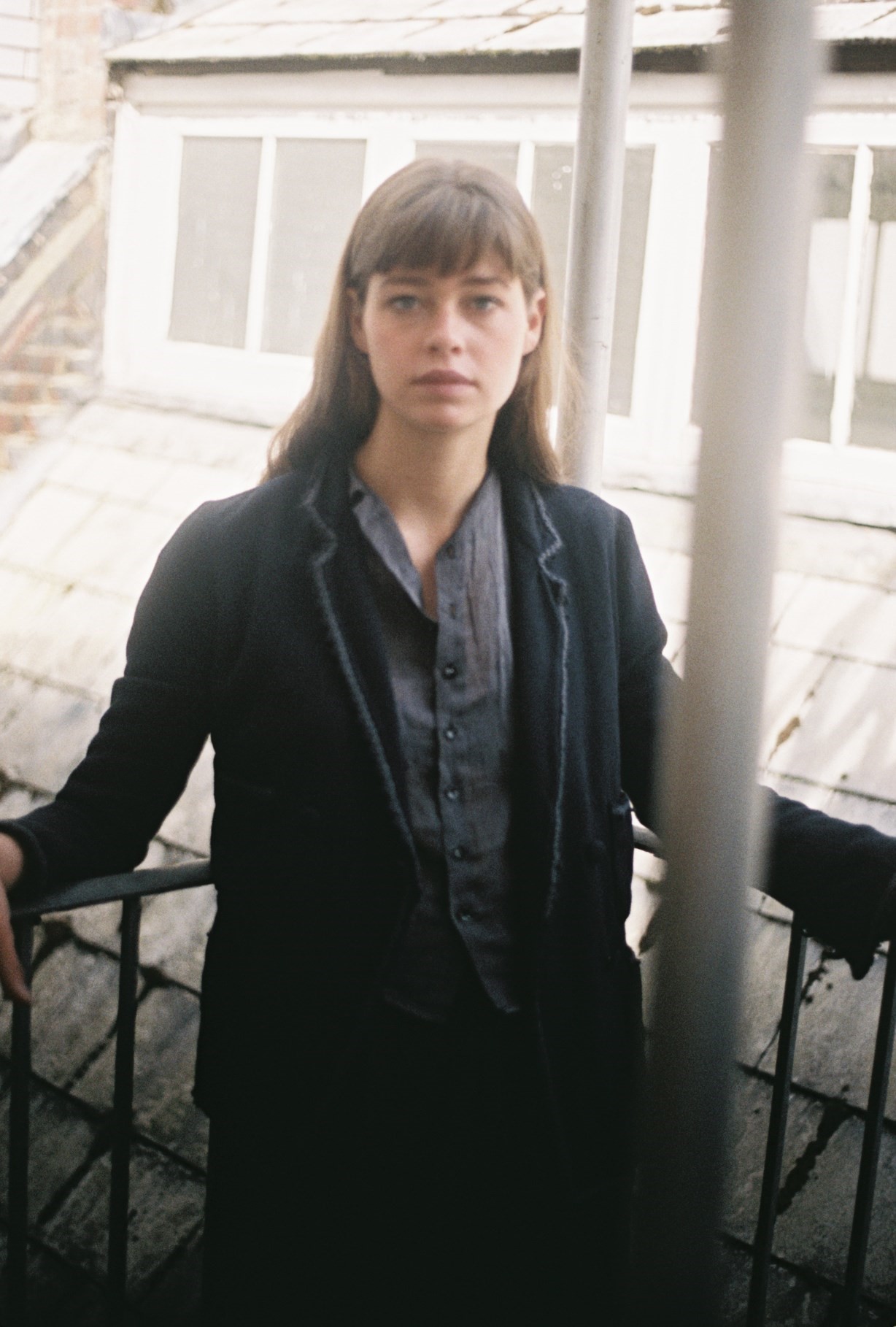
On the current state of fashion...
“Fashion? Are you kidding? It’s bad for the customer, bad for the worker, bad for society, and bad for the environment. Fashion still remains one of the industrial age's biggest human failures. The skill sets required to make clothes are getting scarcer and scarcer, as Yohji Yamamoto stated recently, we have less and less competition – clothing designers are more and more rare ... It’s now only stylists working for big luxury brands to sell bags and accessories. The hypocrites of the sustainable fashion and ethical creation bandwagon are more numerous, phony and more damaging than ever. The epitome of this is the newest fashion rage in Paris, which I will leave unnamed. We use DHL for shipping our work around the world to our clients and they are the best in business, but they make a lousy T-shirt. In fact, they don't even make the T-shirts, just like the logo-slappers that don't make anything either.”
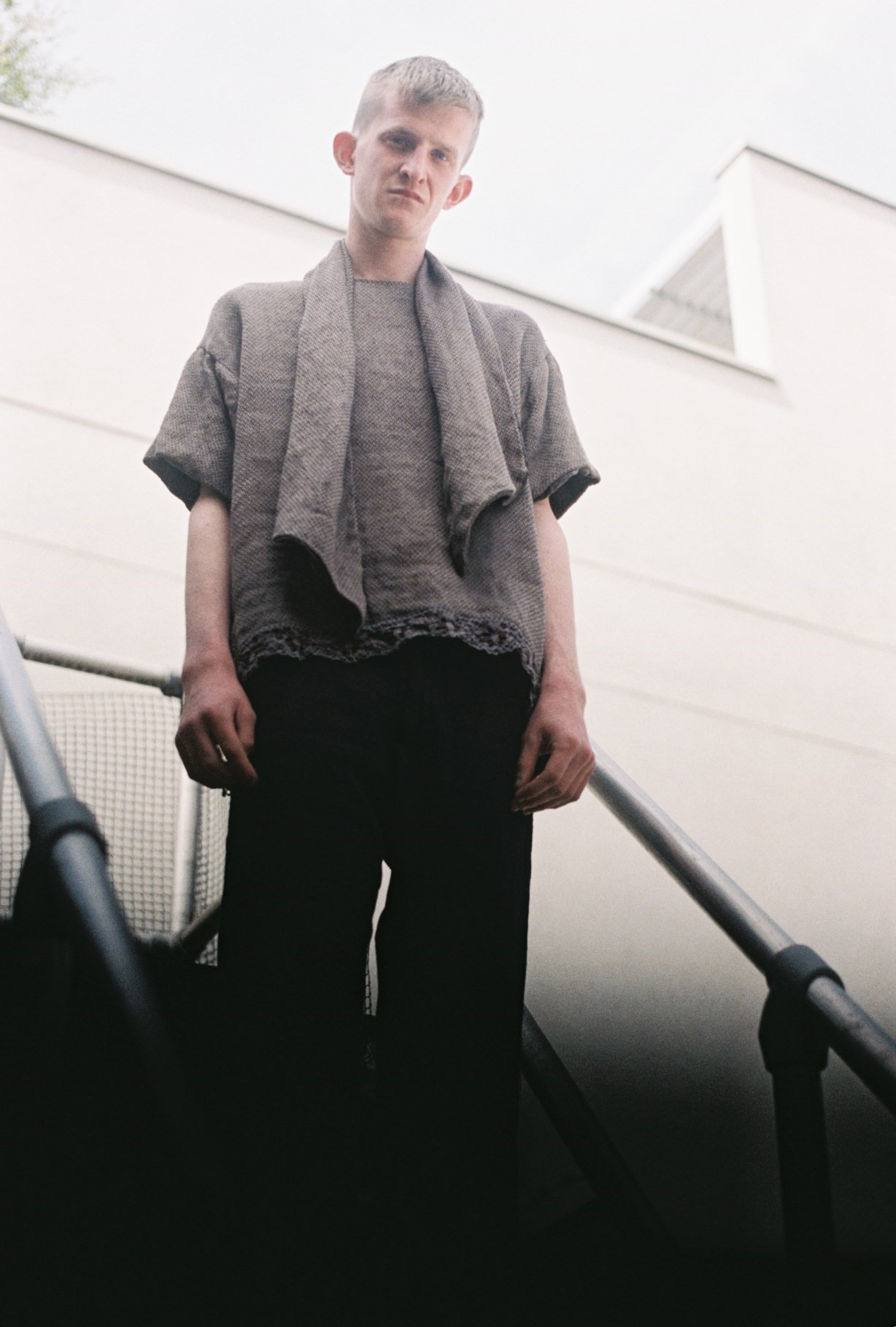
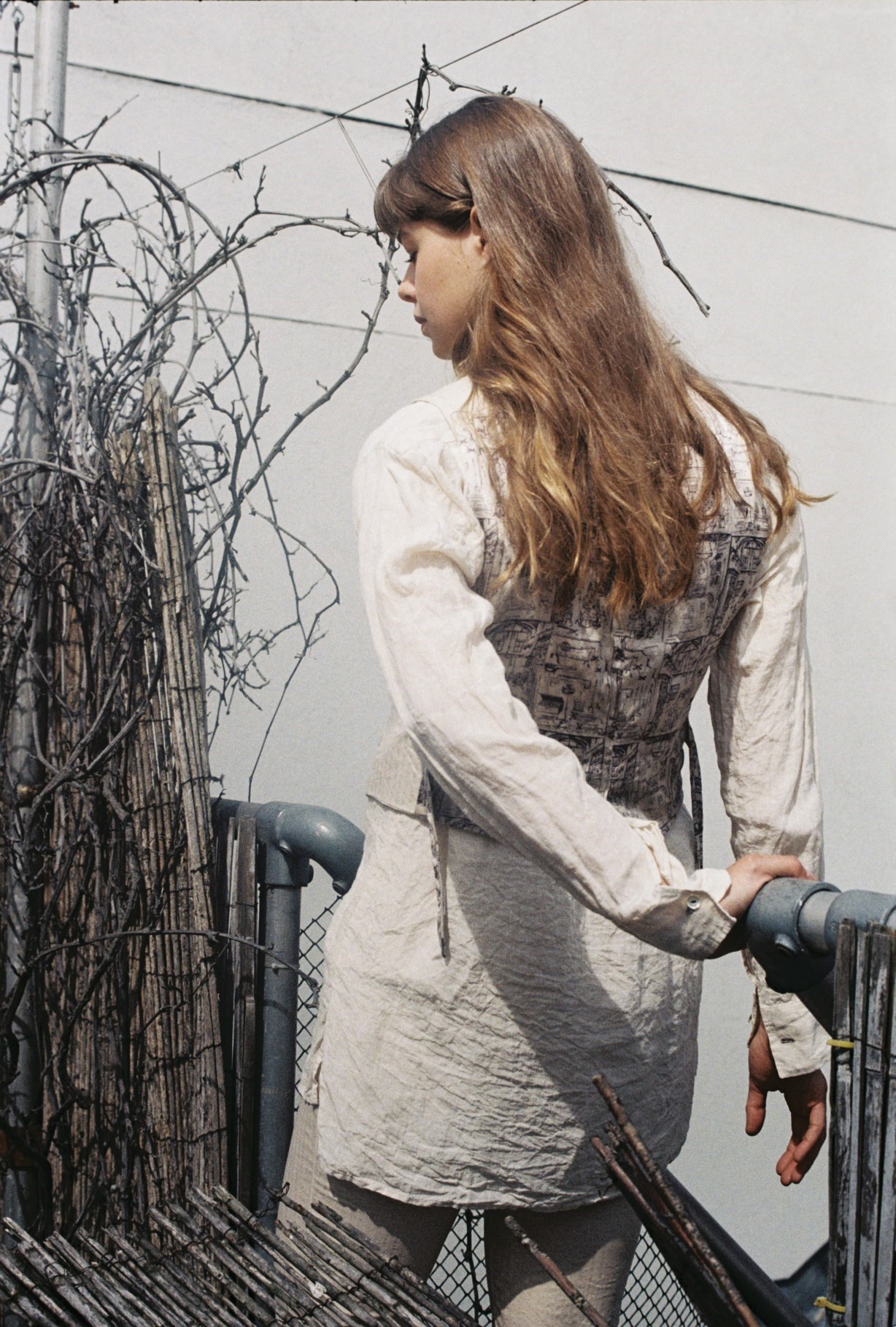
On the importance of a hand-crafted process...
“Hand work requires no electricity, petroleum or machinery. It emits no carbon or methane into the atmosphere. It provides life skills and work to human beings and enables them to create garments and fabric autonomously with less dependency on a system with vastly diminishing resources – for example, one of us can execute a beautiful slip-stitch down a jacket ourselves with just a needle, thread and know-how, far faster and less expensively, and more beautifully, than the typical AMF machine system industrial alternative. The rising costs of global transport and their subsequent greenhouse gas emissions is creating a new reason for work to travel less and less. Therefore, the sourcing and assemblage of product needs to be performed as locally as possible.”
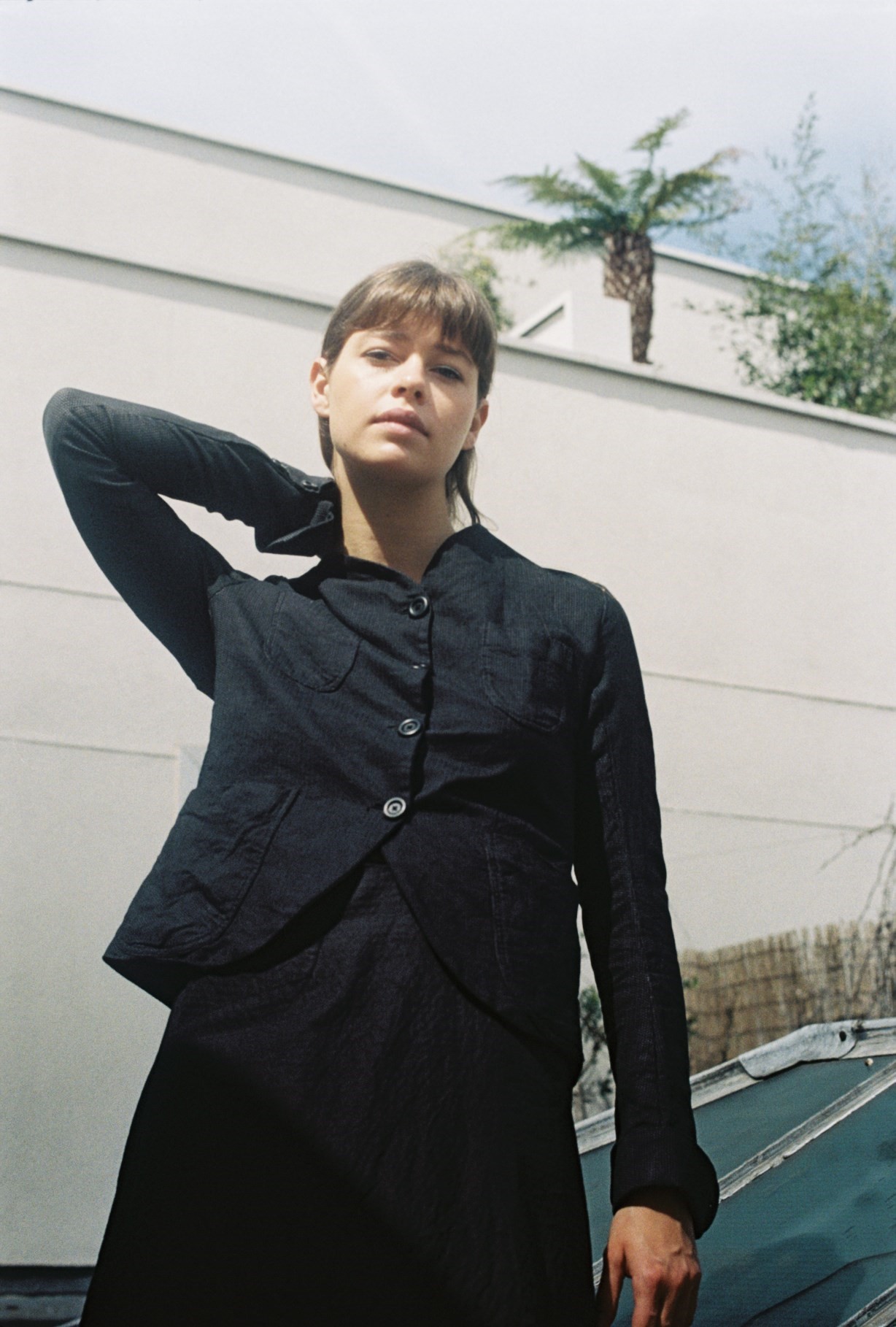
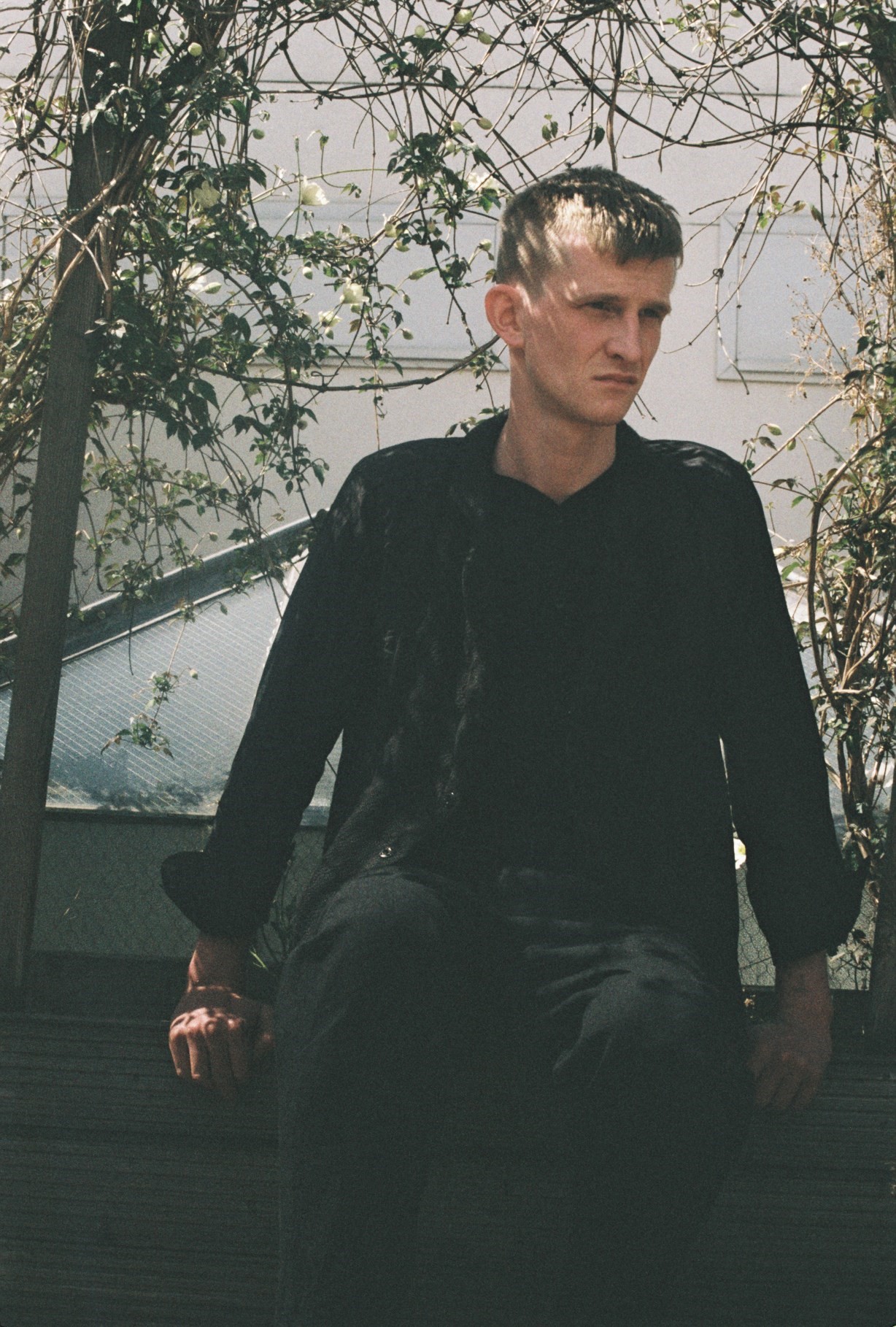
On slowness...
“The fabrics are all totally hand-woven on a series of original 18th-century wooden handlooms that the Colombo family in Morgano has maintained for centuries. It took two days of work for a person working on the handloom to create enough fabric for a single two-piece suit, and then another two days to double hand-dye them to achieve an amazing patina and softness. Because the handloom techniques result in looser weaves than with power looms, the fabric was also very different to work with, so cutting had to be done much more delicately and carefully, otherwise the fabric would run and yarns would unravel quickly. Our initial time studies indicate two to three times longer to cut a suit in this type of cloth, and at an already high price and value, we couldn’t afford to make any mistakes.”
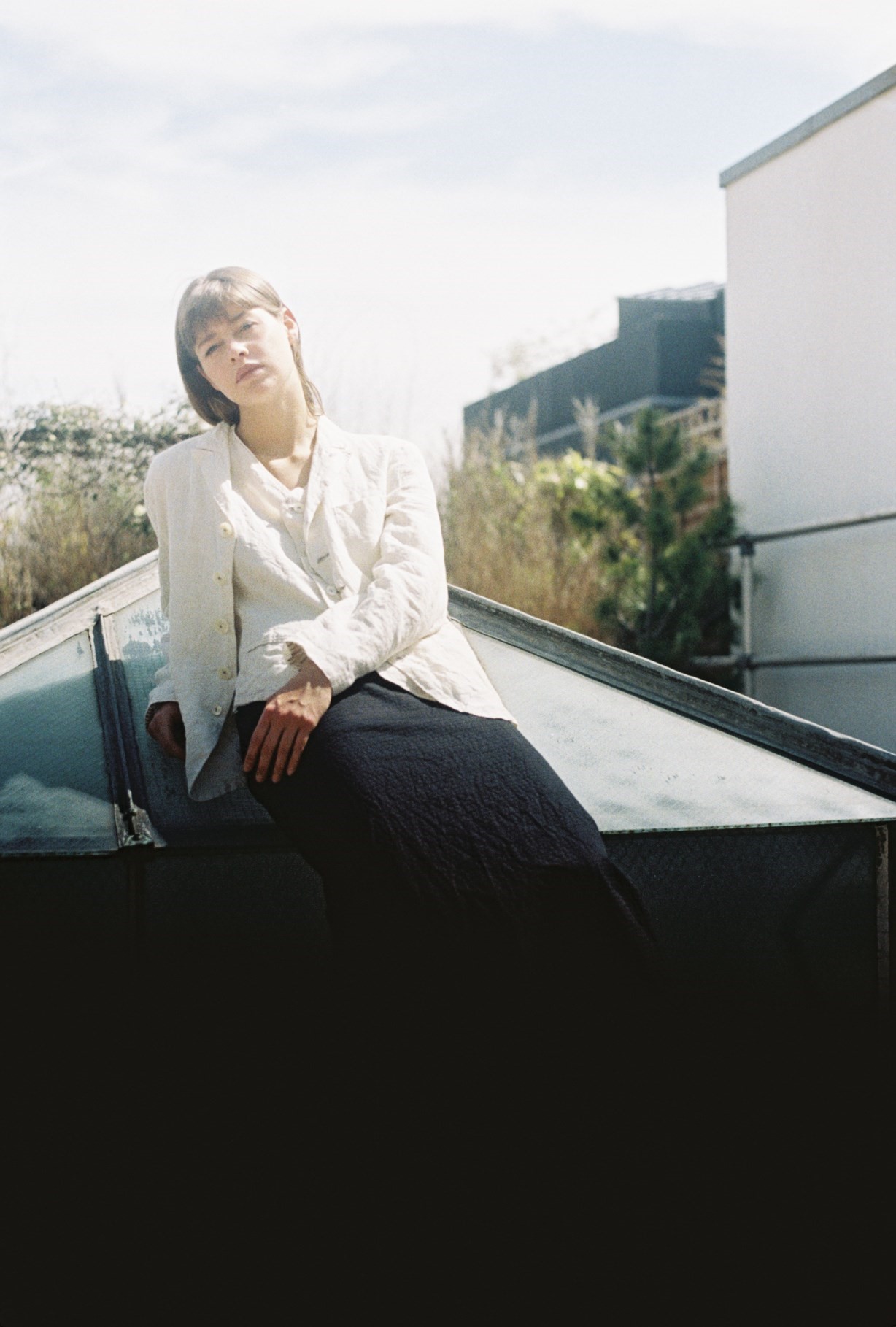
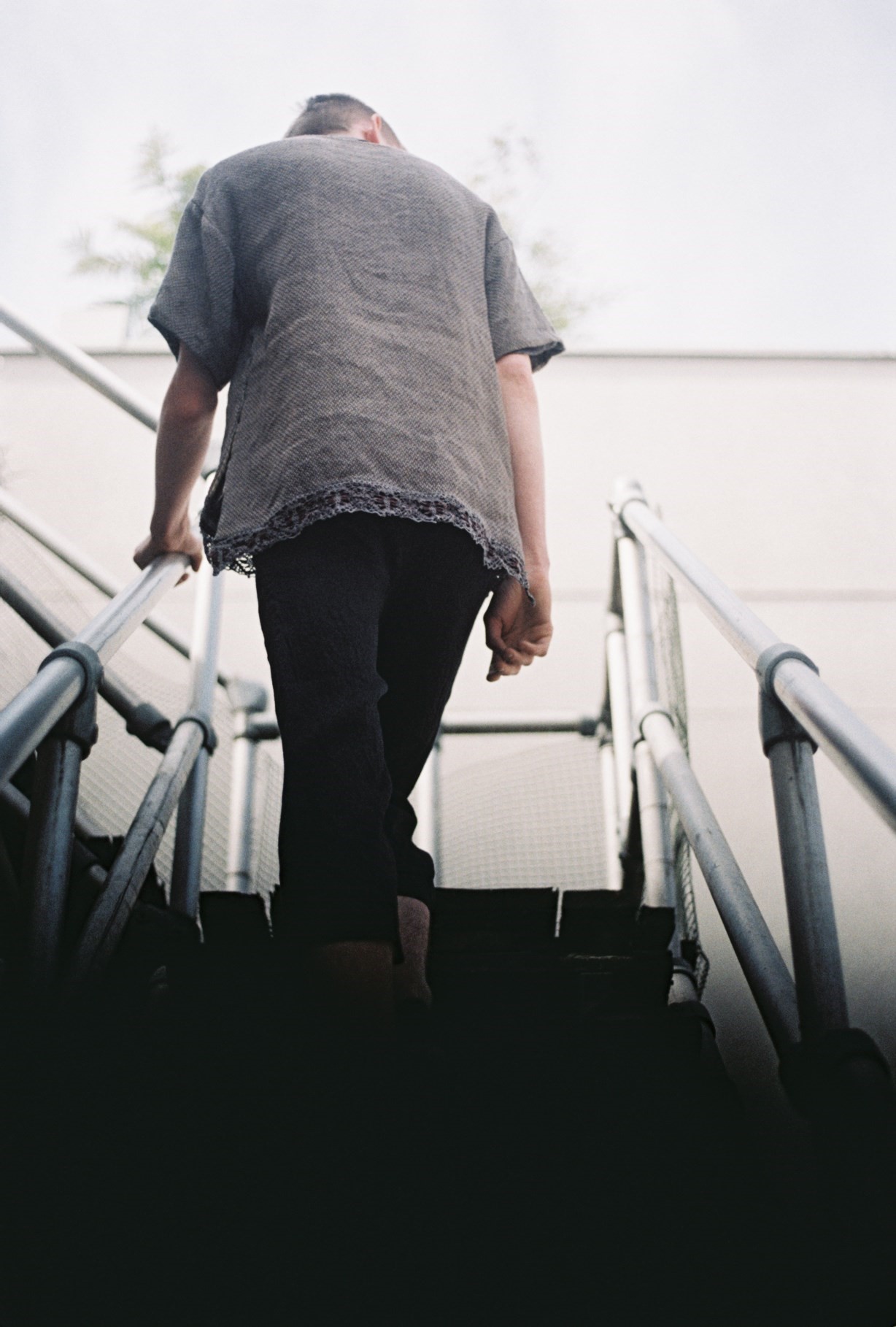
On how the industry has changed...
“The biggest change over the past three decades is not in the industry, but in the world – it's been taken over by corporations. It's not just fashion and textiles; it's banking, transportation, energy, housing, consumer products, and in particular, government and media. We are living in a period that will go down in human history when the nation state gave way to the corporate state, and ushered in a new era of feudalism and an inept, but extremely powerful, ruling class that is hurtling most of us towards extinction. In the 90s, there used to be a huge middle class market for designer fashion, but that is all gone because the middle class is gone, wiped out by the corporations which have concentrated their power and wealth to an increasingly fewer and fewer number of people at the top. More and more, you must choose between designing for poor people, trying to design for middle class people that don't exist anymore, or designing for increasingly richer rich people.”
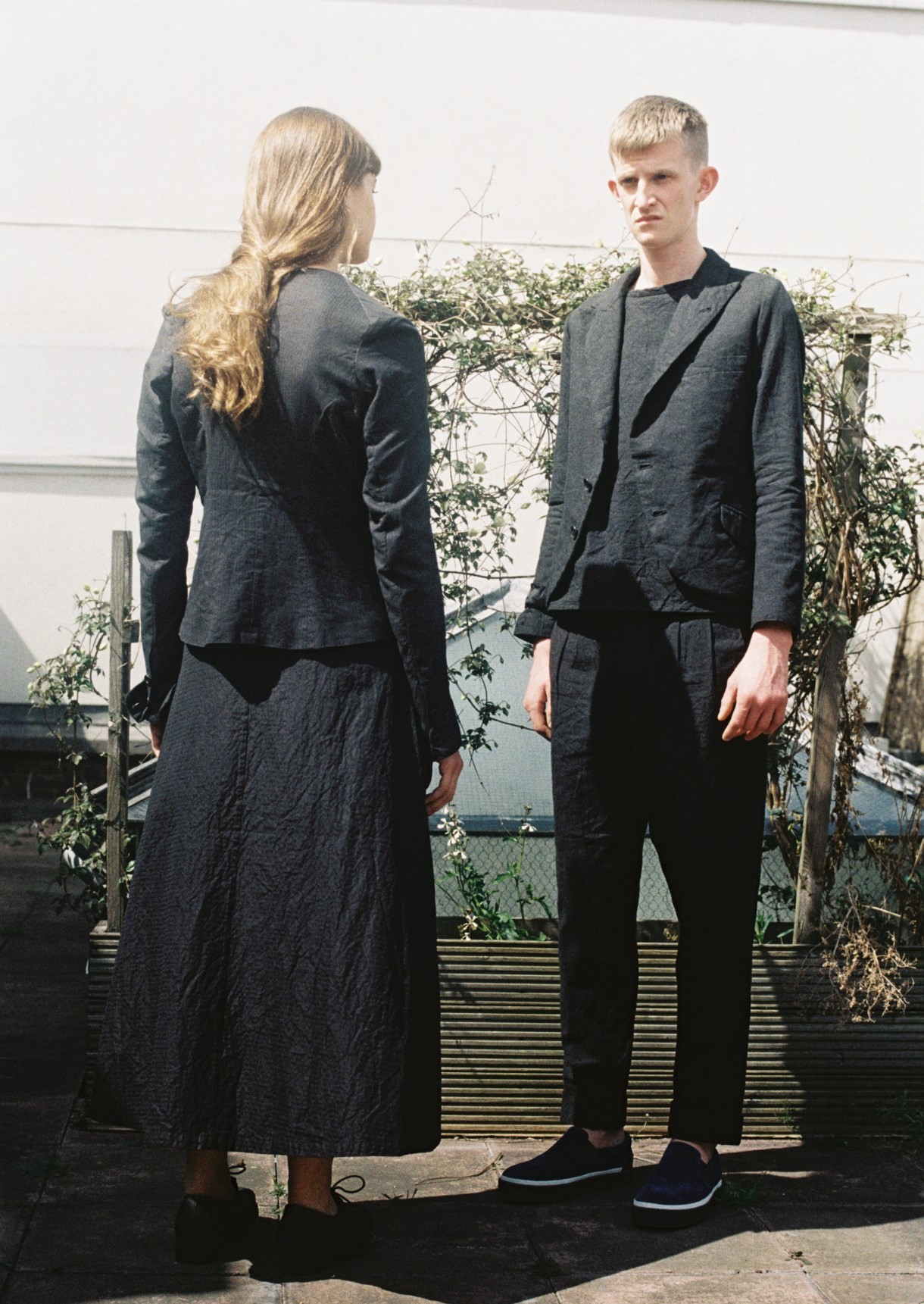
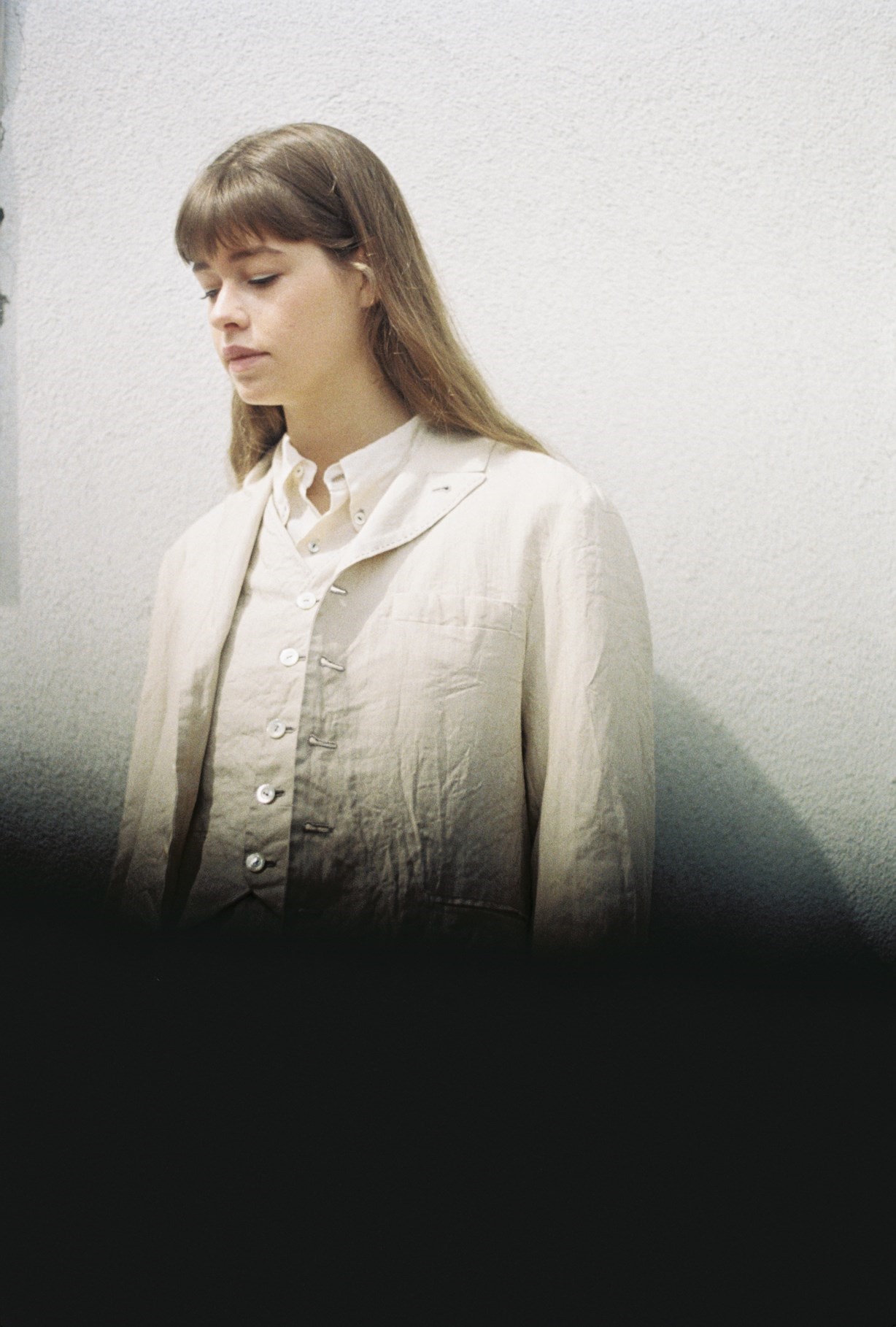
On what must happen next...
“Reducing the amount of product and making things that last as long as possible is tantamount to the new wardrobe philosophy for those who wish to avoid an extinction of the human race within the next few decades. It takes a tremendous amount of skill, time and work to make a limited-edition collection, and it is financially and logistically impossible to over-distribute and over-produce. Every piece must count for the maker and wearer. If making clothing is going to cost more in the future – and it is – it must contain less waste, and that includes slave labour tactics and extravagant consumption of energy, water and natural resources. Micro-scale design and high-value production specifically targeted to customers’ exact needs is the logically sustainable and humane approach.”
Models Jack Appleyard, Paulline de Bionay
Geoffrey B. Small’s capsule collection is exclusively stocked at Hostem, available at www.hostem.co.uk. All images courtesy of Hostem/Ryan Skelton.
